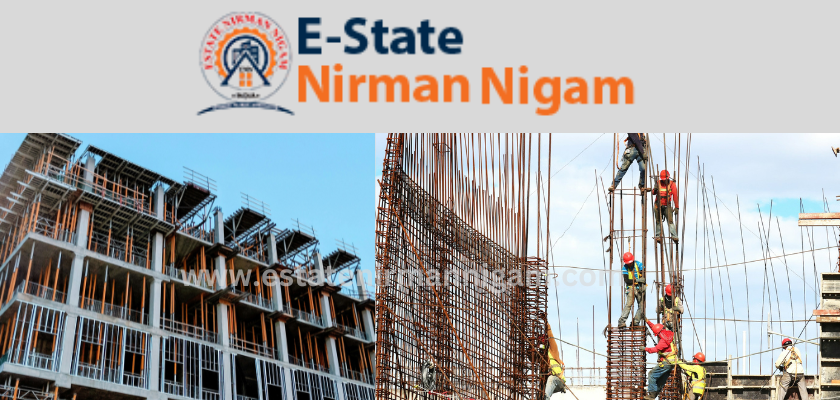E-state Nirman Nigam School Building Project in the District of Noida
E-state Nirman Nigam A comprehensive explanation of a school building project can cover various aspects, including planning, design, construction, budgeting, regulations, sustainability, and community involvement.

Introduction School Building Project:-
E-state Nirman Nigam Planning Phase Importance of planning in school construction projects. Initial needs assessment: Understanding the educational requirements, student capacity, location considerations, etc.
Formation of a project team: Roles and responsibilities of architects, engineers, contractors, and school administrators.
Stakeholder engagement: Involvement of teachers, students, parents, and the local community in the planning process.
Site selection criteria: Factors influencing the choice of location for the school building.

Design Phase School Building Project:-
Architectural considerations: Design principles for educational facilities, including space utilization, natural lighting, ventilation, and accessibility.
Sustainable design: Integration of eco-friendly practices such as energy efficiency, water conservation, and use of renewable materials.
Safety and security measures: Designing for emergency preparedness, including fire safety, earthquake resistance, and security systems.
Technology integration: Incorporating modern technology infrastructure for classrooms, laboratories, and administrative areas.

Construction Phase School Building Project:-
Procurement process: E-state Nirman Nigam Selection of contractors through bidding or negotiation.
Construction management: Supervision of the building process, adherence to timelines, quality control, and budget management.
Regulatory compliance: Ensuring compliance with building codes, zoning regulations, and environmental standards.
Community impact mitigation: Minimizing disruptions to the surrounding community during construction.
Budgeting and Financing School Building Project:-
Cost estimation: Determining the overall project budget based on design specifications and construction requirements.
Funding sources: Identifying funding sources such as government grants, bonds, private donations, and community fundraising.
Budget allocation: Allocating funds for various aspects of the project, including construction, design fees, permits, and contingency reserves.
Financial management: Monitoring expenses, managing cash flow, and reporting financial performance to stakeholders.

Regulatory Compliance School Building Project:-
Building codes and permits: Understanding the regulatory framework governing school construction projects at the local, state, and federal levels.
Environmental regulations: Compliance with environmental impact assessments, waste management, and sustainable building certifications.
Accessibility standards: Ensuring accessibility for individuals with disabilities in accordance with the Americans with Disabilities Act (ADA) and other regulations.
Green building certification: Pursuing certifications such as LEED (Leadership in Energy and Environmental Design) to demonstrate environmental performance.
Energy-efficient design: Incorporating features such as passive heating and cooling, solar panels, and energy-efficient lighting systems.
Waste reduction and recycling: Implementing strategies to minimize construction waste and promote recycling of materials.
Community Involvement School Building Project:-
Engaging stakeholders: E-state Nirman Nigam Involving the local community, including parents, residents, and businesses, in the planning and construction process.
Community benefits: Creating opportunities for community use of school facilities, such as recreational spaces, meeting rooms, and adult education programs.
Educational partnerships: Collaborating with local organizations, universities, and businesses to enhance educational opportunities for students.
Communication and transparency: Providing regular updates to the community on project progress, timelines, and potential impacts.

